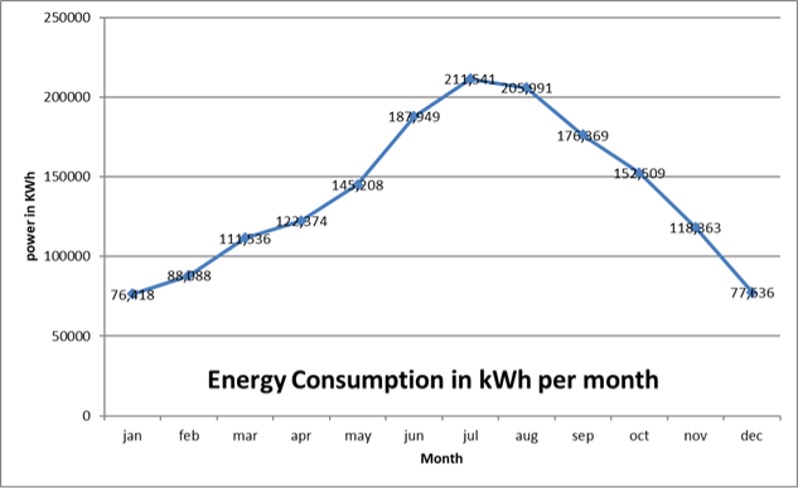Al-Bayan University actively conducts energy reviews to monitor and optimize electricity usage across its campus. With an annual electricity consumption of 1,673,982 kWh, averaging around 139,498 kWh per month, these reviews are essential for identifying areas of high energy consumption and potential wastage.
Energy Consumption Analysis
The university’s energy reviews focus on several key areas, including lighting, air conditioning, and other major appliances, to understand consumption patterns. Regular assessments help pinpoint sections of campus facilities where energy demand is highest, such as laboratories, libraries, and administrative buildings that operate continuously or during extended hours.
Identification of High-Consumption Zones
Through energy reviews, Al-Bayan University has identified high-energy usage zones and has implemented measures like:
- Upgrading to LED Lighting: LED lights, including motion-controlled systems, have been installed in high-traffic areas to reduce energy consumption by minimizing unnecessary lighting.
- Efficient Air Conditioning Systems: High-efficiency air conditioning units have replaced older models, especially in classrooms and offices, to reduce energy demand during peak hours.
- Monitoring Major Appliances: Regular monitoring of refrigerators, computer systems, and other significant appliances helps ensure they are running efficiently and only when necessary.
Ongoing Energy-Saving Initiatives
The university remains committed to improving energy efficiency and minimizing wastage. The energy reviews not only focus on current usage but also guide future renovations and construction projects, incorporating energy-efficient designs and practices that align with standards such as the Iraqi Energy Efficiency Standards 402, 505, 506, and the British BS 7671:2018+A3:2024.


















